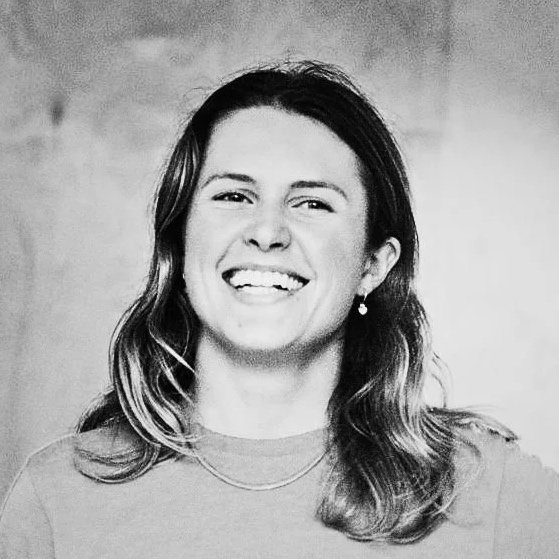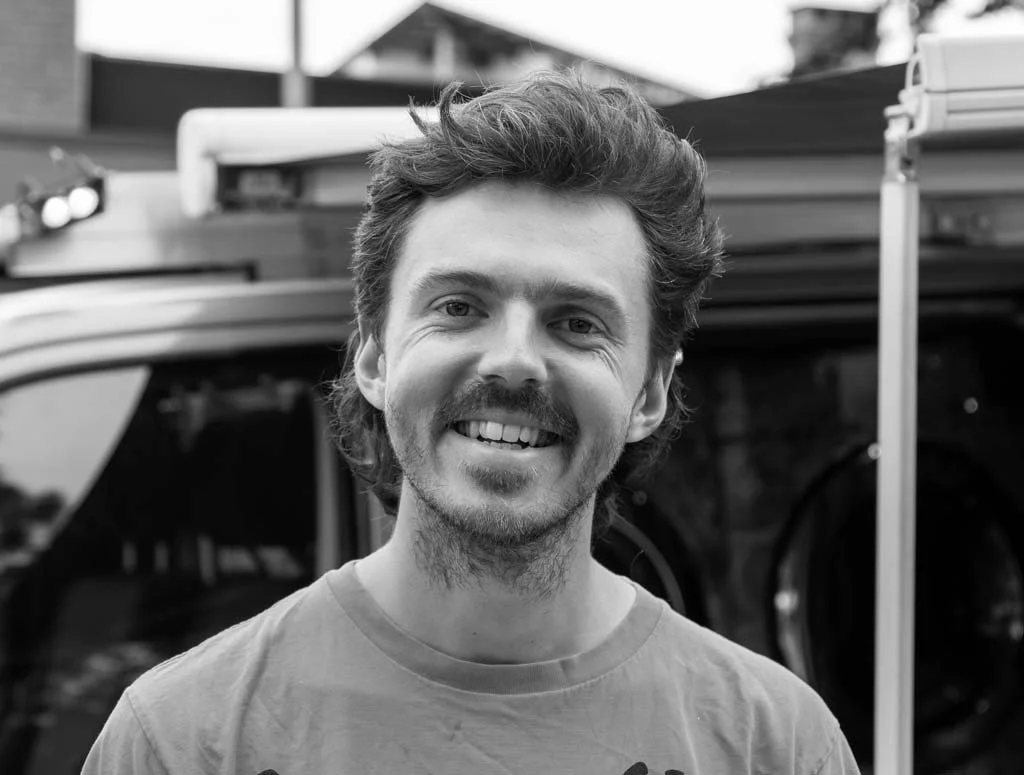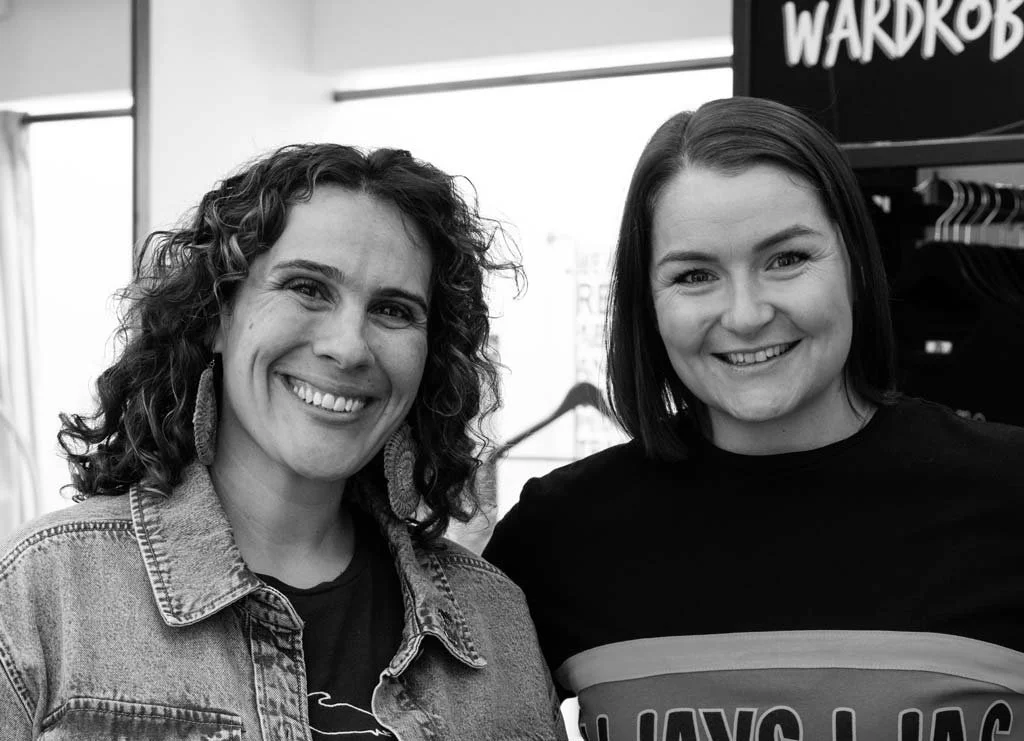Azubuike Akunne On Designing Smart Food Systems That Centre Community Nutrition And Wellbeing
Azubuike Akunne is a multidisciplinary entrepreneur and artist working at the intersection of food access, technology, and community development.
He is the founder of NeuBite, a fintech and hardware solution enabling vending machines and smart fridges to accept SNAP/EBT payments, bridging gaps in healthy food access through unattended retail. Azubuike also leads AveNeu, a hybrid grocery store and art gallery located in Columbus, Ohio, housed in his late father’s former pharmacy. The space serves as a cultural and nutritional anchor for the King-Lincoln District, blending public health with creative placemaking.
With a background in nutrition, fabrication, and business development, Azubuike has worked globally across design, construction, and technology, and currently serves as the Fabrication Lab Manager at Columbus College of Art & Design. His work challenges traditional systems while empowering communities through innovation, equity, and deeply personal storytelling.
Azubuike discusses how fintech and smart vending machines integrated with public assistance programs can transform food access, and why community-centred design, innovation, and art are essential to addressing systemic inequity in underserved neighbourhoods.
Highlights from the interview (listen to the podcast for full details)
[Indio Myles] - To start off, can you please share a bit about your background and what led to your work and impact-led design?
[Azubuike Akunne] - I’m Azubuike, born and raised in Columbus, Ohio. From when I was a young child, I’ve always had my hands on many different projects and ideas. At first, when I was younger, they may have been scatterbrained, but I had this constant curiosity about how to be not just a ‘problem solver’, but more solutions-oriented.
As I got older, I realised that people who create solutions make a lot of impact on the world. They may not be talked about much, but their impact lives on. That’s what really drew me in. It wasn’t about wanting to be a celebrity for what I bring to the world, but more about introducing ideas and concepts to the world that feel natural when they come to light.
That’s who I am. I know my background is all over the place, but I think that’s because when I was growing up, my parents were immigrants to the United States. Their main goal was to figure out a formula to make sure their children would be successful in some way.
In my Nigerian community, this meant focusing on sciences or engineering. That’s what pushed me into the science side of things. But from my heart and core, I’m an artist and a designer. Now that I’m a little older, I get to blend everything I was taught growing up with the experiences I’ve had travelling around the world to make an impact in my hometown.
As a co-founder of NeuBite, can you share more about how it merges FinTech and smart vending technology to improve nutritious food accessibility?
Honestly, I actually started this idea conceptually almost 10 years ago. It began as a cargo bicycle I was using to deliver healthy food items to the south side of Chicago, Illinois, when I lived there.
Throughout my experiences and travels the concept evolved. The core ethos became: how do we ensure people have access to food? I realised vending machines are mobile, and you don’t need to build a large store format to make them accessible.
Increasingly in the United States, vending machines are shifting from offering just snacks or unhealthy items to becoming all-purpose solutions, similar to what you might see in Japan. That made me start thinking: how can we bring this kind of impact to underserved communities here?
The US is quite interesting. I know the headlines make us seem all over the place, but some of the fundamental systems we have really do benefit a lot of people. One of those is the Supplemental Nutrition Assistance Program, or SNAP, which is managed by the United States Department of Agriculture. Essentially, SNAP supplements your nutrition by giving you money on an EBT card, which you can use to buy groceries and food items.
Knowing that the US Government distributes about a hundred billion dollars a year in benefits to people in the country and its territories, I realised attaching myself to this market would be incredibly impactful, both financially and in terms of access. Around 20% of the United States population receives some form of government food assistance. Out of 300 million people, that’s a significant number.
How has your personal journey and work in impact-led design influenced your approach to NeuBite and how you address systemic issues like food insecurity and nutritional inequity?
My family owns a number of properties in what used to be a lower-income area of town known as the King Lincoln District, the Near East Side, or Bronzeville. It has a few different names now! There were originally no grocery stores in this district, and there weren’t any pharmacies until my dad opened one there about 20 years ago.
My dad’s a pharmacist, and my mother kept us involved in sports and activities for both the brain and body. So there’s always been this idea in our household that health is wealth.
I initially studied mechanical engineering at university because I thought it would get me closer to design. But it leaned more towards mathematics, and at that time, I didn’t yet have the confidence to pursue that path fully. I pivoted into nutrition because it was closer to the sciences I had grown up with.
That decision turned out to be great for me. In nutrition, I learned that many of the reasons people were coming to my dad’s pharmacy were due to preventable illnesses, whether it was smoking, excessive drinking, or unhealthy eating. These things can be managed or avoided entirely. Not everyone needs to be on high blood pressure medication or face type two diabetes, gout, or high cholesterol.
These conditions are often the result of how people interact with their environment. I still live in this area, and unhealthy food is everywhere. But based on my knowledge and experience, I choose not to engage with those options. That’s my way of moving toward a healthier life, one where hopefully I won’t become dependent on medication. Knowing that we have agency over our health has reframed impact for me.
It made me see nutrition as a critical tool for changing how people view and experience the world.
Why is it essential for people like yourself and other social entrepreneurs to reimagine business models through a lens of community development and local impact?
A lot of people love things feel close to home. It helps a business perform better financially when things look and feel local. It also makes individuals who interact with the business feel welcome and like they have a stake in what’s happening, even if their only form of investment is buying a product off the shelf.
It makes people feel more connected. We live in a global world. My city, Columbus, Ohio, might seem like a small town to some, but we have an airport that can get you anywhere in the world via connecting flights. That’s always on my mind. People can choose to go anywhere and do anything. The means of getting there might differ for each person, but the freedom is there.
I don’t think of my location as particularly special in itself. Instead of believing people will come to me because they ‘need’ me, I focus on creating a space people are drawn to, where they feel comfortable and can engage fully. That’s the philosophy behind both my project Aveneu (a grocery store and gallery) and Neubite with its smart vending machines. People need to feel a connection to what they’re engaging with. They need to feel like, “I belong here. I can see myself within this.”
We’re only here for a limited time. There have been more people on this planet than I can even begin to count. In my short time here, I want to offer services people can use, and if those services are no longer needed in the future, maybe they’ll still inspire someone else.
Take the horse and buggy for instance. Neither of us has likely used one, yet they used to exist. From that simple mode of transport came continued innovation, and now even cars reference “horsepower” to describe their performance. When I was younger, I genuinely thought there were horses in engines!
Now I understand they’re tapping into nostalgia to help us understand the present. I want to create something that exists beyond me. Even if the doors close or the name changes, the idea should live on in someone’s mind, so they can continue it in their own way.
How have your experiences in storytelling, cultural heritage, and design shaped your approach to human-centred design? Are there any key principles you believe impact-led entrepreneurs should embrace to inspire change?
The main thing I’d say is get yourself out of the way and just do it. You might not even be here by the time the impact is realised. That’s something I think about a lot.
We’re all descendants of someone who made one or two decisions that led to us being here. We didn’t choose to be here. From a business and impact standpoint, this realisation reminds me that I won’t always feel inspired to help the community. Sometimes the community might even frustrate me, but I still have to move myself out of the way and ask, “What am I allowing to flow through me that can positively enter someone else’s life?”
I know how to survive. I can forage if I need to. I’ve done it before; I know I can feed myself. But with the knowledge and experience I have, I want to give something back to the world–a gift. Sure, that gift might come with a price tag once a year, but more importantly, people can see it and become inspired by it.
That’s crucial for impact entrepreneurs to understand. Get out of the way. Don’t worry about your face being on the Forbes’ Top 40 or other vanity-driven publications. Focus instead on creating something you truly believe in. Because if you believe in it, I guarantee there are millions of others out there who will believe in it too. They will support you.
Also, it’s essential to remember the goal of any business should be sustainability. For a venture to be sustainable, it must be viable. Someone, or some entity, must find value in what you’re offering; valuable enough to purchase it or make use of it.
It’s not enough to set up a community garden and hope people support it. You have to actively find ways to integrate your project into the world around you. Force that garden, or whatever you’re creating, onto the world in a way that invites engagement.
Especially in today’s world, where you can get almost anything with a simple AI prompt, it’s more important than ever to think beyond ourselves. We need to make things that are abundant, useful, and available to everyone.
Do you have any other advice or suggestions for social entrepreneurs who are working to challenge entrenched systemic inequalities?
One word—read. I find that to be incredibly important. Of course, mix in some fiction from time to time, but spend at least some time reading about what others have done before. There’s nothing new under the sun. Someone has done it in some form or capacity, and that’s why we’re even able to do the things we’re doing now.
Somebody thought these things through—not necessarily just one person—but a few, or even millions, have contributed to the innovations we benefit from today. Whether it’s electricity, running water, or the way we now communicate on platforms like Zoom. These are all built on ideas that came before us.
If you can read into the stories of those who created the tools we use, it’s incredibly valuable. Think about it mathematically. Most people live about 80 years. If you tried to observe someone’s entire life, like in The Truman Show (a popular American film), you’d need 80 years to do so. You probably don’t have that kind of time.
But a biographer can study a person’s life for, say, four years and distill their journey into a 400-page book. Depending on your reading speed, it might take you a week, a month, or two months to read it. But in that short time, you’ve digested a lifetime of knowledge and insight. That’s a gift you can’t get anywhere else.
Read about the people you admire and read about those whose approaches you don’t agree with. Learn from both. Because these people are giving you tools, knowing they won’t always be here to use them themselves. There’s this idea that everyone wants to be remembered. But really, you don’t need to be remembered. What matters is whether people can continue to use what you’ve created to make the world better.
All it takes is one idea. I was born in 1991, and when I was growing up, I don’t remember seeing recycling bins. Now, they’re almost everywhere.
That idea might have originated from environmentally conscious people back in the 1960s, 50s, or even the 1800s. As 20-to-30-year-olds, we are now deeply conscious about our use of plastics, paper, and our impact on the planet.
We don’t remember the person who told us to recycle. We still use the tool; that’s what matters. For entrepreneurs: read, get out of the way, and focus on the impact.
What inspiring projects or initiatives have you come across recently creating a positive change.
To be honest, all of them. The good and the bad are all making a difference. I look at what’s happening right now in the conflict between Israel and Gaza—whether it’s called Israel-Hamas or Israel-Palestine, depending on the news source—and I see the immense impact it’s having on people around the world.
People are asking, “What’s going to happen to all these individuals? How can we ensure there will be a space for healing after this conflict? How are we better understanding food supplies, or military capabilities?” With everything going on, socially aware people have the space to say, “It might not be now, but once this ends, my actions and my work will need to respond.”
For instance, I think about NeuBite. Granted, countries in that region may not have programs like SNAP or EBT, but when it comes to aid in conflict zones or areas struck by natural disasters, imagine how impactful it would be to ship a vending machine stocked with supplies such as medicine, food, or even books. The people receiving those supplies could use them on their own terms, in their own time, and feel empowered in doing so.
I look at the world as a source of constant inspiration. All it takes is a few people saying, “Let’s do better,” for conflict to begin to resolve. I stay open to what’s happening around me, and I draw inspiration from it all.
To finish off, are there any books or resources you’d recommend for our audience to check out?
I’m currently reading Made in America by Sam Walton, the founder of Walmart. It’s a really good book. There’s also a great podcast called Founders. Of course, make sure to tune into Impact Boom, there are incredible stories from people all around the world.
Initiatives, books and resources mentioned on the podcast
AveNeu Grocery & Gallery
Sam Walton: Made in America by Sam Walton







